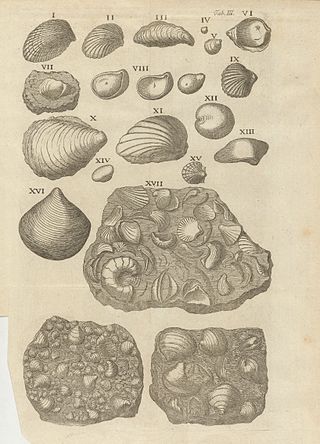
Gottfried Wilhelm (von) Leibniz was a German polymath active as a mathematician, philosopher, scientist and diplomat. He is a prominent figure in both the history of philosophy and the history of mathematics. He wrote works on philosophy, theology, ethics, politics, law, history and philology. Leibniz also made major contributions to physics and technology, and anticipated notions that surfaced much later in probability theory, biology, medicine, geology, psychology, linguistics and computer science. In addition, he contributed to the field of library science by devising a cataloguing system whilst working at Wolfenbüttel library in Germany that would have served as a guide for many of Europe's largest libraries. Leibniz's contributions to a wide range of subjects were scattered in various learned journals, in tens of thousands of letters and in unpublished manuscripts. He wrote in several languages, primarily in Latin, French and German.

Gottfried Wilhelm Leibniz University Hannover, also known as the University of Hannover, is a public research university located in Hanover, Germany. Founded on 2 May 1831 as Higher Vocational School, the university has undergone six periods of renaming, its most recent in 2006.

The Monadology is one of Gottfried Leibniz's best known works of his later philosophy. It is a short text which presents, in some 90 paragraphs, a metaphysics of simple substances, or monads.

In the history of calculus, the calculus controversy was an argument between the mathematicians Isaac Newton and Gottfried Wilhelm Leibniz over who had first invented calculus. The question was a major intellectual controversy, which began simmering in 1699 and broke out in full force in 1711. Leibniz had published his work first, but Newton's supporters accused Leibniz of plagiarizing Newton's unpublished ideas. Leibniz died in disfavor in 1716 after his patron, the Elector Georg Ludwig of Hanover, became King George I of Great Britain in 1714. The modern consensus is that the two men developed their ideas independently.

Erhard Weigel was a German mathematician, astronomer and philosopher.

Acta Eruditorum was the first scientific journal of the German-speaking lands of Europe, published from 1682 to 1782.
The Max Planck Institute for Developmental Biology Tübingen was located in Tübingen, Germany; it was founded as Max Planck Institute for Virus Research in 1954 as an offshoot of the Tübingen-based Max Planck Institute for Biology. From 1984 to 2021, it was named Max Planck Institute for Developmental Biology. The topics of scientific research conducted at the institute cover a very wide range -- from biochemistry, cell and developmental biology to evolutionary and ecological genetics, functional genomics and bioinformatics -- in order to address fundamental questions in microbial, plant and animal biology, including the interaction between different organisms.
The Leibniz Centre for Contemporary History Potsdam is an interdisciplinary research institute focusing on the contemporary history of Europe, especially Germany, and member of the Leibniz Association.
Emily Rolfe Grosholz is an American poet and philosopher. She is Edwin Erle Sparks Professor of Philosophy, African American Studies and English, and a member of the Center for Fundamental Theory / Institute for Gravitation and the Cosmos, at the Pennsylvania State University.

Friedrich Leibniz was a Lutheran lawyer and a notary, registrar and professor of moral philosophy within Leipzig University. He was the father of Gottfried Leibniz.

The Leibniz Review is a peer-reviewed academic journal devoted to scholarly examination of Gottfried Leibniz's thought and work. It publishes contemporary articles and reviews, as well as original Leibniz texts. The Leibniz Review is sponsored by the Leibniz Society of North America and edited at Ohio State University in Mansfield, Ohio. Subscriptions and access are provided by the Philosophy Documentation Center.

Eberhard Knobloch is a German historian of science and mathematics.
Conrad Henfling, musicologist, musician, mathematician and lawyer was an official and privy councilor (Hofrat) at the court of the Margrave of Ansbach, Germany. He also invented a new type of keyboard for organ and harpsichord, the design of which was extended by Paul von Janko in his 1882 patent for a keyboard layout.

Laurens W. Molenkamp is a professor of physics and Chair of Experimental Physics at the University of Würzburg. He is known for his work on semiconductor structures and topological insulators.

Protogaea is a work by Gottfried Leibniz on geology and natural history. Unpublished in his lifetime, but made known by Johann Georg von Eckhart in 1719, it was conceived as a preface to his incomplete history of the House of Brunswick.
George Henry Radcliffe Parkinson was a British philosopher and historian of philosophy.
The following outline is provided as an overview of and topical guide to Gottfried Wilhelm Leibniz:
Joachim Küpper is a professor of romance studies and comparative literature at the Freie Universität Berlin. Küpper has published on authors from various periods, including Homer, Dante, Petrarch, Shakespeare, Francisco de Quevedo, Pedro Calderón de la Barca, Lope de Vega, Alessandro Manzoni, Balzac, Flaubert, Theodor Fontane, and Alain Robbe-Grillet. In addition, he works on problems of literary theory and intellectual history. He is the author of eight monographs and approximately 100 articles, as well as the editor of numerous volumes and scholarly journals.

A Short History of Modern Philosophy: From Descartes to Wittgenstein is a 1982 book by the English philosopher Roger Scruton, in which the author provides a history of modern philosophy. The second revised and enlarged edition was published in 1995. Scruton examines the thoughts of Descartes, Spinoza, Leibniz, Hobbes, Locke, Berkeley, Hume, Kant, Hegel, Schopenhauer, Kierkegaard, Marx, Nietzsche, Mill, Frege, Husserl, Heidegger and Wittgenstein among others.











